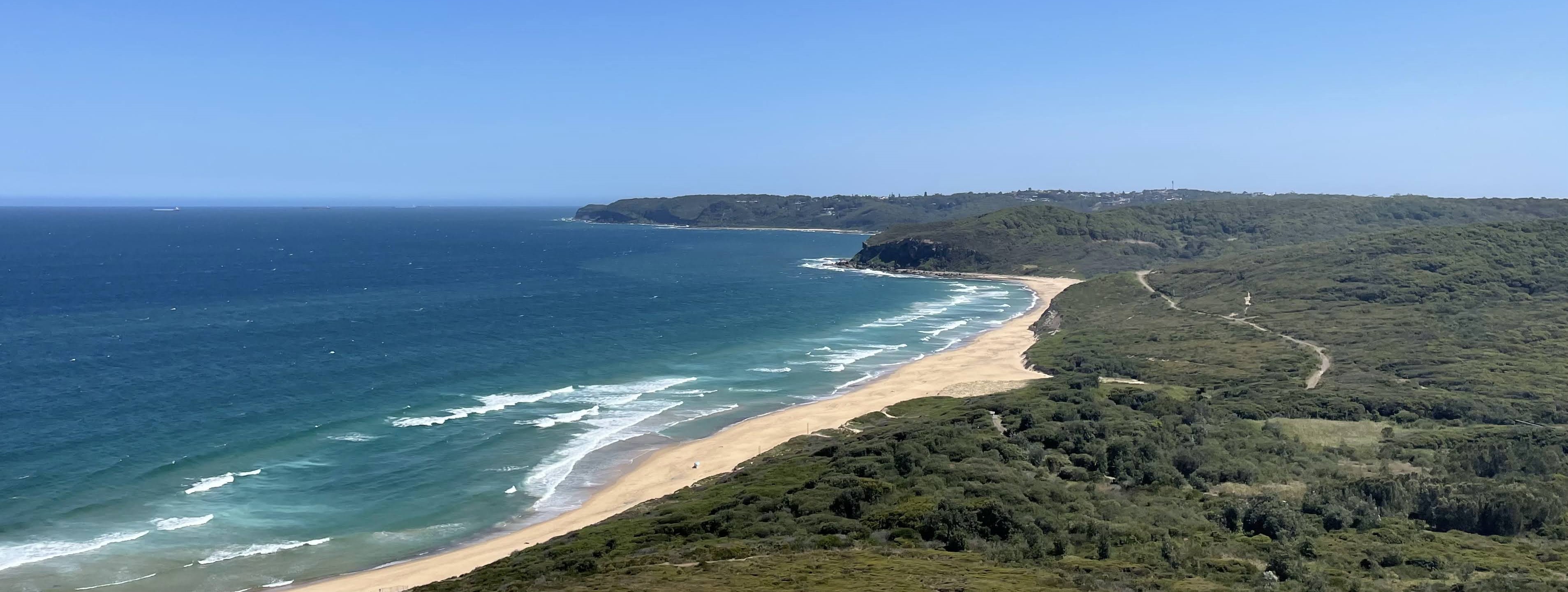Faculty-led Program in Australia - Winter
Experience the diverse ecosystems in Melbourne and Tasmania through this two week faculty-led program to Australia! Students will gain in hands-on experience with UNI's partner school, University of Tasmania, explore unique habitats along the coast, and learn about the importance of biodiversity, conservations, and ecological research. Students will also gain a deeper appreciation of Australian culture and natural heritage through visits to national parks, wildlife sanctuaries, and local communities.
Overall, this program will work to enhance participants understanding of biological sciences, foster a sense of environmental stewardship, and provide a unique opportunity to experience the rich biodiversity of Melbourne and Tasmania.

Dates & Deadlines
App Deadline: September 15, 2025
Program Dates (tentative): December 31, 2025 to January 14, 2026
To get started click the link below to schedule a meeting with an advisor.
Interested in studying abroad in the Spring 2025 or later? Please fill out the waitlist form below and the study abroad center will notify you when applications for future terms open. If you are still deciding where or when you want to go abroad, you can also schedule an informational meeting with our office to learn more about the programs we offer and find one that works best for you!
Faculty-Led Program Waitlist Schedule Info Meeting
Unsure where to begin? Visit our Application Process page to learn more!
Course Leaders
Peter Berendzen
Department: Biology
Phone: 319-273-2456
E-mail. peter.berendzen@uni.edu
Campus Address: MSH 144
- Academics
BIOL 1200: Biological Diversity and Conservation (3 credit hours)
- This course can fulfill a variety of credit options, such as the Responsibility requirement in UNIFI.
Biological diversity (biodiversity) is essential for healthy, functioning ecosystems that form the basic life support system for all living creatures on earth, including humans. The current reduction of biodiversity (extinction rate) is estimated between 100-1000 times the historical background rate and presents a potentially existential challenge for human society. In this course, we will examine biodiversity: how it is measured, the causes and effects of the current rate of its decrease, and efforts to conserve the remaining biodiversity and difficulties these efforts face. Conservation may appear straightforward at first blush, but the implementation of policies are often rife with ethical questions ranging from the rights of indigenous peoples in a far away land to the downstream effects of our own day-to-day decision making here at home. Because of the interplay of conservation and ethics, students will compare ethical models that can be brought to bear when considering both conservation issues on a global or regional scale and personal responsibility and decision making. Students will begin developing their own model of conservation ethics that they can use (and adjust) during their class project and throughout life. Students will begin this work on campus and will further the work during our travels while completing a self-designed conservation-based project incorporating their ethical model.
The Study Abroad Center will enroll participants in their study abroad course.
Talk to your academic advisor about how this course would work for you!
No prerequisites. All majors welcome. Participation in this program requires several class meetings during the fall semester, although the course is scheduled as a winter session course. The Study Abroad Center will enroll participants in the course. Please contact the program's course leader for more information on academic requirements.
NOTES:
- Winter session courses are billed tuition and fees.
Students attending colleges and universities other than UNI are welcome to participate in this program. If you are not currently a UNI student, but would like to participate in this program, please contact the UNI Study Abroad Center prior to starting your program application.
- Itinerary
Tentative Program Dates: December 31, 2025 (depart) - January 14, 2026 (return)
Sample itinerary is subject to change.
Day 1: Arrive in Melbourne. Group transportation to hotel, followed by a group welcome dinner.
Day 2: Spend the day exploring Phillip Island by visiting the Maru Koala and Animal Park to hand feed and pet a range of Australian-native animals, and the Conservation Hill and Rhyll Inlet - a world renowned habitat for migratory waders, Swan Lake Walk. Finish the day watching the Penguin Parade as the little penguins return home at dusk.
Day 3: Free day in Melbourne to explore. Immerse yourself in the city's vibrant culture, visit a museum, or wander around the heart of Australia.
Day 4: Explore the Great Ocean Road, one of the world's most scenic routes, with stops at iconic sites like the Twelve Apostles. Group lunch included.
Day 5: Morning flight to Hobart, capital of the island of Tasmania. Acquaint yourself with Jane Franklin Hall, located on the prestigious University of Tasmania, where you will be staying for the next week. Orientation with tea in the afternoon.
Day 6: In the morning, visit the Experimental Aquaculture Facility in Taroona. Explore UTAS’ Institute for Marine and Antarctic Studies by talking with staff, course coordinators, and research students. Visit followed by a catered lunch and free afternoon.
Day 7: Continue your immersion into IMAS by partaking in a half-day boat excursion focused on collecting phytoplankton. Enjoy lunch at a local seafood restaurant followed by a final presentation from IMAS staff.
Day 8: Prepare yourself for a day tour of Mt. Field National Park, packed with scenic waterfalls, gorgeous hikes, and a visit to the Bonorong Wildlife Sanctuary.
Day 9: Enjoy a day tour exploring the picturesque Bruny Island, known for its rugged coastlines and abundant wildlife including seals, dolphins, and whales. Morning tea and lunch included.
Day 10: In the morning, participate in an enlightening presentation on sustainability. Following this, enjoy an excursion to Tunnel Hill Mushroom Farm, which presents students the opportunity to learn about sustainable farming practices. BBQ lunch included.
Day 11: Immerse yourself in nature as you partake on a walking tour of Maria Island, which has no cars or shops and presents a unique opportunity to disconnect from society and observe wildlife and aboriginal culture.
Day 12: Flight from Hobart to Sydney. Conclude your journey by enjoying some free time to explore Australia’s most bustling city and take in iconic sights like the Sydney Opera House and Harbour Bridge.
Day 13: Flight back to the US.
- Participant Info
Meet your Advisor:
Jamie is a full time study abroad advisor who will help you throughout the application process to Australia, including documentation, finances, scholarships, and more. From your first steps meeting until you take off for your new adventure, Jamie will help you every step of the way.
Important information to review:
Study abroad is a once-in-a-lifetime opportunity to be challenged by new experiences in new environments and cultures. UNI study abroad programs are designed to prioritize educational opportunities for students. Students are encouraged to embrace the adventure of exploring how housing, meals, and daily routines differ abroad.
Entry and Exit Requirements:
Review and follow the travel recommendations of the U.S. State Department for travel to Australia

- Housing & Meals
Students will stay in hotels arranged by the Study Abroad Center while abroad. The cost of these hotels are included in the "Program Cost" line item of the program cost estimate. A few meals are built into the "Program Cost". Students will pay for the remaining meals out-of-pocket while traveling and are encouraged to try the local foods.
Program Costs
Estimated Program Cost: $7,327-$8,255
*estimated total cost of participation, actual amount depends on type of housing accommodation selected, actual airfare purchase price, personal spending habits, and other factors
| Charges | Estimated Cost |
|---|---|
| Estimated Total Program Cost | $7,327-$8,255 |
| Estimated U-bill Charges | $6,846-$7,746 |
| Estimated Out-of-Pocket Costs | $481 |
What's Included

Tuition and Fees

Housing and Meals

Program Activities

Pre-Departure Advising

Travel Health Insurance

Transportation
Eligibility Requirements to Study Abroad
The Study Abroad Center reserves the right to determine participants' eligibility to study abroad. Students must have a completed study abroad application, including supportive recommendation form(s). View eligibility requirements.

